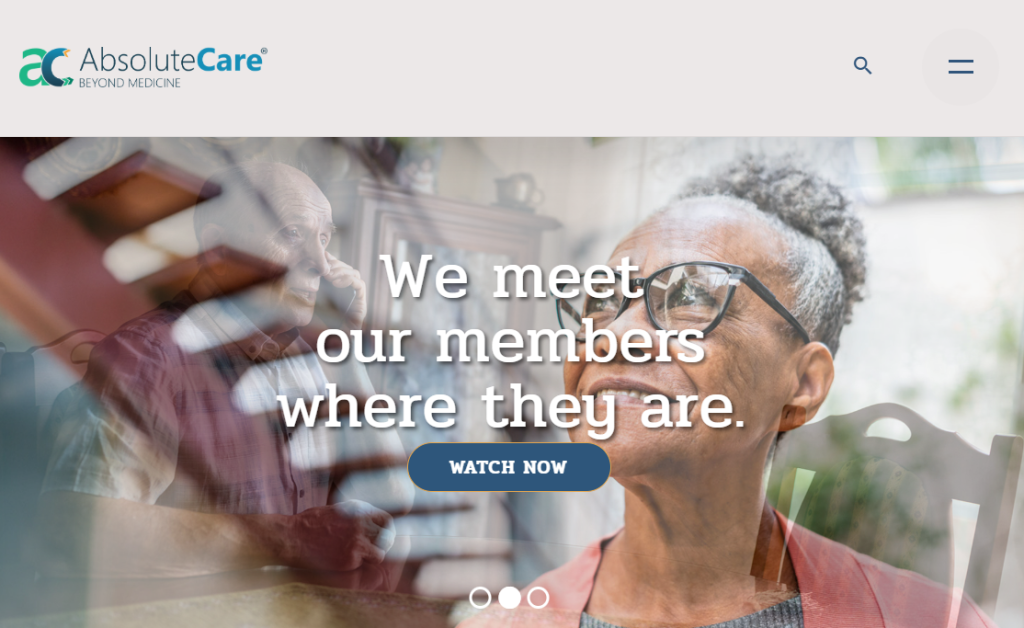AbsoluteCare Raises $135M to Scale Its Full-Risk Care Model for Underserved Populations
August 5, 2025
byFenoms Start-Ups

AbsoluteCare, the innovative healthcare provider delivering comprehensive, value-based care to the nation’s most medically complex patients, has secured $135 million in new funding. The round was led by Kinderhook Industries, with participation from CVS Health Ventures, Pacific Life, and Lexington Partners.
Under the leadership of Michael Radu, AbsoluteCare is reimagining care delivery for the people often left behind in traditional systems - those with multiple chronic conditions, behavioral health needs, unstable housing, and high emergency room utilization. The model goes far beyond primary care, integrating social support, housing assistance, mental health services, and wraparound care.
This round positions AbsoluteCare to significantly expand its footprint and deepen its impact, particularly in geographies where traditional fee-for-service models have failed the most vulnerable patients.
Why Value-Based Care Needs to Go Full Risk
Let’s be real - most so-called “value-based” care models still live in the shadow of fee-for-service. They tweak incentives, optimize billing codes, and wrap analytics around outdated infrastructure. But they rarely change the game.
AbsoluteCare operates differently. It assumes full financial and clinical risk for the sickest 3–5% of the population - patients who account for nearly 50% of all healthcare spend in the U.S. This means if costs rise, AbsoluteCare takes the hit. If outcomes improve and costs go down, they reap the benefit. It’s accountability with teeth.
That kind of risk alignment forces a radically different design:
- 24/7 wraparound care teams
- Medical centers that feel more like safe spaces than clinics
- Mental health support integrated, not outsourced
- Intensive social determinants navigation - from housing to food insecurity
- Patient engagement metrics measured daily, not quarterly
What emerges is something rare in American healthcare: outcomes-first, dignity-centered care.
Where Most Healthcare Startups Get Stuck
Here’s a truth bomb most healthcare founders avoid:
“Your tech won’t fix broken incentives.”
AbsoluteCare’s insight is simple yet profound - incentives must be rebuilt from the ground up, especially when dealing with high-need populations. The company is less focused on building dashboards and more focused on rebuilding trust. And trust, especially in healthcare, isn’t software - it’s presence, consistency, and results.
Too many startups try to disrupt care with telehealth or AI while ignoring the human reality on the ground. But when your patient has no transportation, unstable housing, and hasn’t seen a doctor in five years, what they need isn’t an app. They need a team. One that knows their name, understands their trauma, and meets them where they are - literally and figuratively.
Founders in digital health, take note:
The future of care isn’t just digital - it’s embedded. Real transformation happens when tech enables human connection, not replaces it.
The Strategy Behind AbsoluteCare’s Investor Lineup
This $135M round is more than a cash infusion - it’s a strategic alliance. Each investor adds critical firepower:
- Kinderhook Industries brings experience in scaling care delivery businesses with strong operational rigor
- CVS Health Ventures provides potential integration pathways with pharmacy, retail clinics, and payer infrastructure
- Pacific Life and Lexington Partners offer financial backing to support long-term population health risk
Together, they’re backing a care model that’s intentionally hard to build - because the payoff is worth it. When you serve the highest-risk patients and succeed, the ROI is measured not just in dollars - but in lives radically improved.
Founder Spotlight: Michael Radu
Michael Radu, CEO of AbsoluteCare, is a veteran of population health management. His experience spans payer and provider orgs, and he’s known for a hands-on leadership style that prioritizes impact over optics.
Radu isn’t interested in buzzwords or pilot programs. His north star is simple:
Reduce unnecessary hospitalizations. Improve lives. Bend the cost curve.
And he’s doing it by empowering care teams, embedding services into communities, and betting on the long tail of impact - not the short-term MLR games that plague the industry.
Industry Outlook: The Rise of Full-Risk, High-Touch Models
The U.S. spends $4.5 trillion annually on healthcare, with the top 5% of patients responsible for over 50% of costs (KFF, 2024). These are individuals with comorbidities, social challenges, and trauma histories that traditional models aren’t built to support.
According to McKinsey, the value-based care market is expected to grow from $500 billion in 2023 to $1 trillion by 2030, driven by CMS mandates, payer transitions, and outcome-based contracts.
But not all VBC is created equal. The most promising models are:
- Full-risk aligned (not shared-savings dependent)
- Focused on complex patients, not just the worried well
- Embedded in local ecosystems, not digitally detached
- Enabled by tech, but built on trust and team-based care
AbsoluteCare sits at the intersection of all four. That’s why they’re thriving while others pivot.
What’s Next for AbsoluteCare
With this raise, AbsoluteCare plans to:
- Expand to new markets with high unmet need, particularly in the South and Midwest
- Build out its medical home model with co-located behavioral health and case management
- Invest in predictive analytics to better triage patient needs and personalize outreach
- Train and scale local workforce pipelines to staff new centers
- Pilot community partnership programs with housing orgs and social services
Sources suggest new payer partnerships are also in the works, potentially bringing AbsoluteCare’s model to Medicare Advantage and Medicaid populations across more states.
Final Thought: Building Healthcare That Works for Those Who Need It Most
While the health tech world often chases shiny object syndrome - AI, wearables, decentralized trials - AbsoluteCare is winning by doing the hard, human work.
They’re not just fixing a system. They’re redefining it from the inside out, one complex patient at a time. And with $135M in backing, they’re just getting started.
For founders, the lesson is clear:
Real healthcare innovation isn’t about tech-first - it’s about impact-first.
And the most powerful business model? One that works when everything else has failed.
AbsoluteCare is proving that model is not only possible - it’s scalable.









